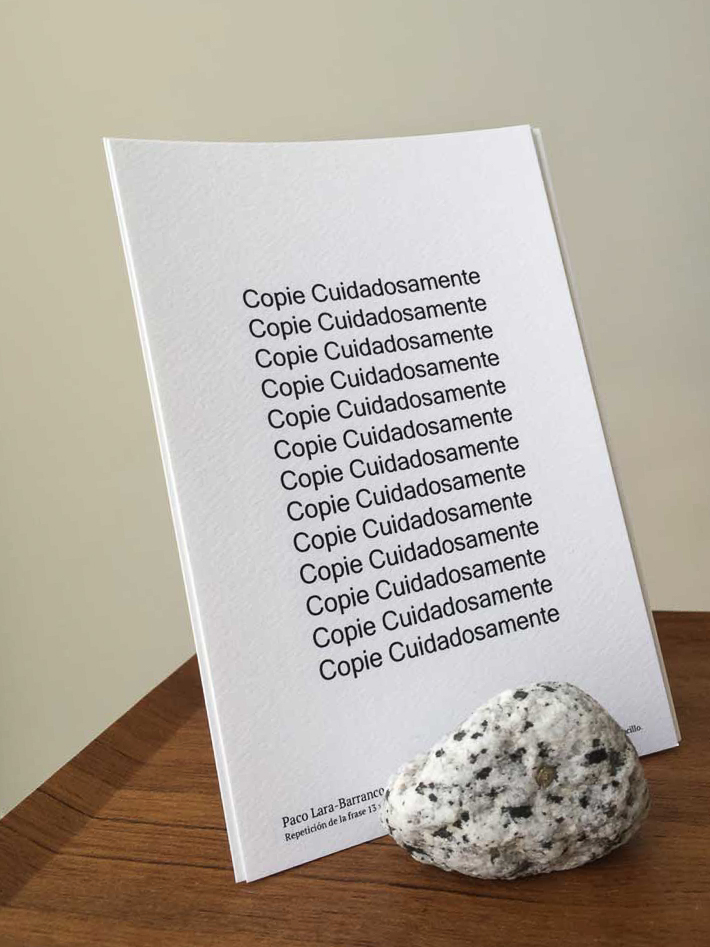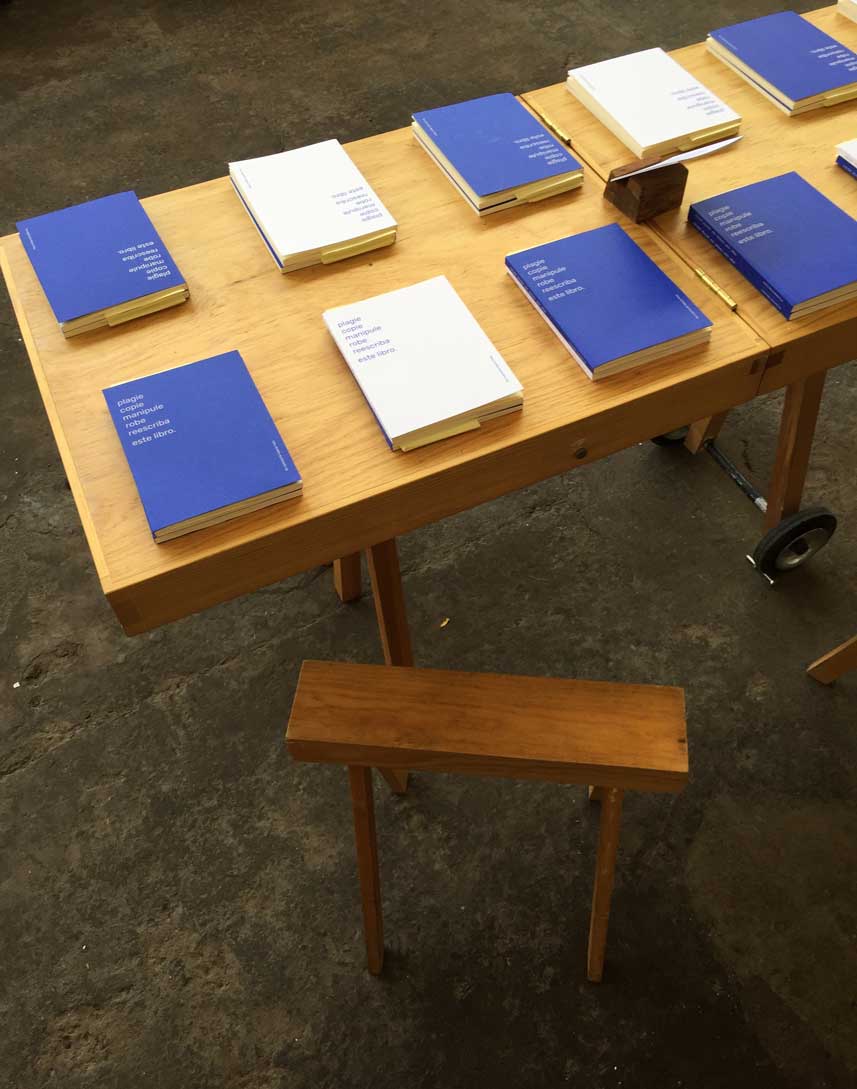Plagie


Plagie, copie, manipule, robe, reescriba este libro se publicó en 2018. El libro forma parte de la investigación, abierta e incompleta, que (no solamente) Valeria Mata ha realizado alrededor de la copia en las artes visuales y la escritura. En este trabajo busca cuestionar, desde una perspectiva antropológica, conceptos como la originalidad, la autoría individual, la propiedad privada de las obras.
Las copias, los plagios, las reescrituras y los fakes generan polémica dentro del campo artístico y literario, y suscitan desafíos no solo estéticos, sino filosóficos, económicos y jurídicos. La copia, por lo general castigada en el ámbito artístico, suele considerarse una práctica poco ética cargada de repudio social que se presenta como amenaza a la “originalidad”. Sin embargo, es importante reconocer que las exigencias de autenticidad y las sanciones sociales a la copia tienen variantes en las diferentes culturas y los distintos ámbitos del campo artístico. El acto de copiar no es una transgresión universal como normalmente se afirma, y lo prohibido dentro de las prácticas literarias y artísticas ha ido cambiando a lo largo de los años.

Las aproximaciones socioantropológicas nos permiten ver que aquellas prácticas tradicionalmente analizadas como individuales, aisladas o puramente psicológicas son más bien fenómenos sociales. Solemos pensar que los autores o artistas trabajan solos, sin influencias, pero en realidad toda práctica artística es un proceso que implica relacionarse con los demás, imitarlos, escucharlos. Lo que llamamos "creación" no es un suceso repentino, sino un diálogo profundo con lo que ya se ha hecho antes. Ningún texto u obra de arte surgen de la nada.
Esta investigación propone que las copias, las escrituras combinatorias, las prácticas intertextuales o los fakes también tienen un valor estético, social y político que merece la pena analizar a detalle. La intención es mostrar que estas prácticas pueden ser herramientas críticas, transgresiones, juegos con las palabras y la identidad, cuestionamientos al sistema autoral y al valor de la originalidad que alteran los lenguajes artísticos tradicionales para proponer modos —alternativos y estimulantes— de trabajo, escritura o colaboración.

Plagiarize, copy, manipulate, steal, rewrite this book was published in 2018. The book is part of the open and incomplete research that (not only) Valeria Mata has carried out around copying in the visual arts and writing. In this work she questions, from an anthropological perspective, concepts such as originality, individual authorship, and private property of the works of art.
Copying, plagiarism, rewritings and fakes are all controversial subjects within the artistic and literary fields, and they continue to provoke not only aesthetic challenges, but also philosophical, economic and legal ones. Copying, typically punished in the artistic and creative realm, is generally considered an unethical practice charged with social repudiation, a threat to "originality." However, it is important to acknowledge that the demands of authenticity and social sanctions on copying can vary among cultures, as well as among sectors of the artistic field. The act of copying is hardly a universal transgression, as is typically asserted, and what may be prohibited within literary practices has been changing over the years.

Socio-anthropological approaches have shown us that those practices traditionally analyzed as individual, isolated, or purely psychological are rather social phenomena. We tend to think that authors or artists work all alone, without influences, but in fact, all artistic practice is a process that involves relating to others, imitating them, listening to them. What we call "creation" is not a sudden happening, but a deep dialogue with what has already been done before. No work of art nor text appear from nothing.
This research proposes that copies, combinatory writings, intertextual practices or fakes likewise have aesthetic, social, and political value—and that they warrant in-depth study. The intention is to show that these practices can be critical tools, transgressions, games with words and identity, and critical interrogations of authorship as a system and of originality as a value.